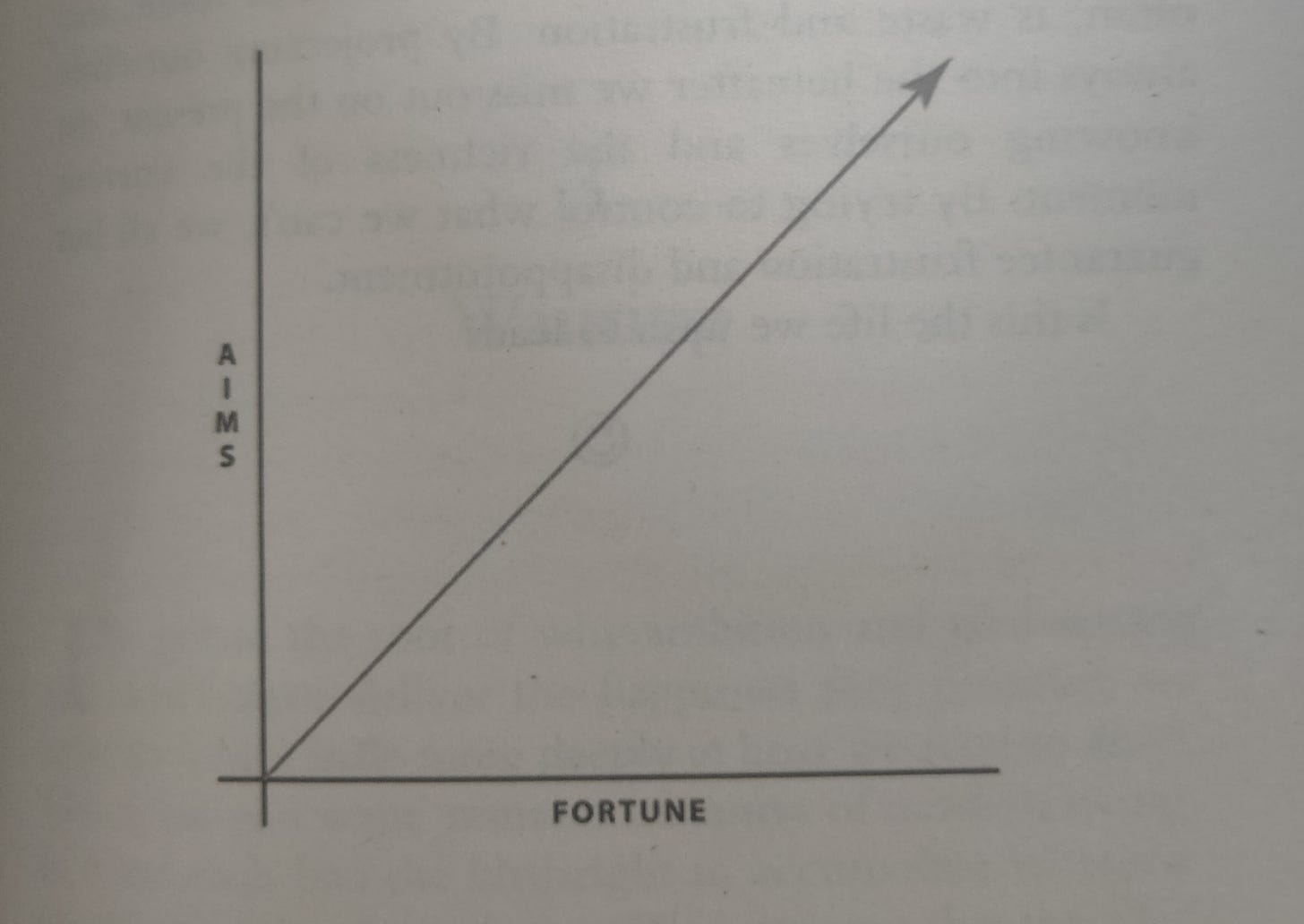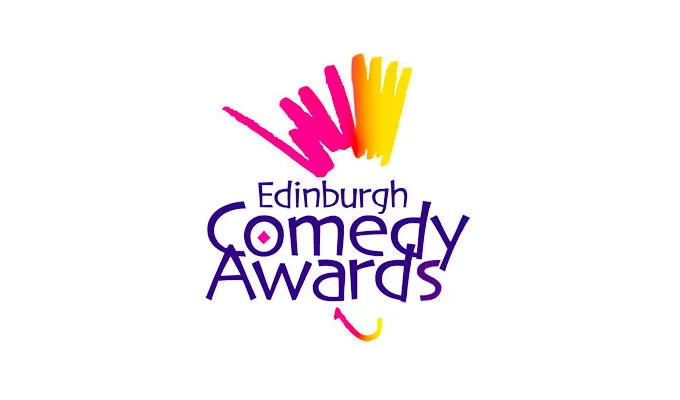Tape 106: The End Of The Edinburgh Comedy Awards?
Certain corners of the UK comedy community were in uproar last week when it was announced that the future of the Edinburgh Comedy Award (formerly the Perrier back when it had a name that was synonymous with itself, since then, by turns, the if.comeddie, the AbsoluteRadio.co.uk, the Fosters, the Personally-Funded-By-Nica-Burns-This-Year-Due-To-Lack-Of-Sponsorship, the lastminute.com and most recently the Dave Award) was in doubt due to the withdrawal of Dave’s sponsorship. Being unable to put up the finances herself this year as she’d had to resort to in previous years*, Nica Burns has said there may well simply not be an award this year, unless they can find a sponsor willing to stump up £200,000 within the next couple of months.
*A great story I heard about the year Nica personally funded the awards was that, having put up considerable personal capital to keep them going, she was desperate to put on a good enough show to really signal the award’s significance and attract sponsorship for future years so she could eventually recoup some of her investment. The Panel Prize that year went to Free Fringe pioneer and absolute renegade Peter Buckley-Hill, who used his speech to rhapsodise about how that year’s awards proved that you don’t need sponsors. I wish I’d been there to see her wrestle the mic off him.
Since that announcement last week, pretty much everyone with some minor investment in the Fringe has had something to say about it, from the numerous acts who are already paid up and locked into this year’s Fringe who are understandably furious that the potential landscape they’re bringing their show to may have just fundamentally changed without their having any awareness of it, to people like Elf Lyons who wrote this piece on why awards are important but why these ones (which I’m going to call the ECAs for simplicity’s sake) need to change, to Adam Larter’s interesting and very insightful take that these sorts of sponsor-hunts happen behind the scenes all the time, and that the fact that the story has been allowed to leak out is probably just Nica’s way of creating as much noise around the awards as possible in order to attract a sponsor, meaning they almost certainly will end up going ahead.
To this chorus of voices I thought I’d add my own, because I’ve written in this newsletter before about the fact that I think the existence of the ECA is, overall, bad for Fringe participants, so I thought I’d use this news as an opportunity to revisit that position and see how I feel about it.
First up, something I need to make absolutely clear so that nobody doing this year’s Fringe and is gutted about this news thinks I’m trying to find positives in their misfortune – the timing of this is obviously horrendous. I think there are all sorts of insidious, cynical problems with the way artists are pressured by producers, agents, managers, tour bookers, etc etc to put themselves at huge financial risk in order to take a show to the Fringe, and encouraged to attach emotional significance to external material rewards – most notably the Edinburgh Comedy Award – that are completely out of their control. But it’s no one person’s fault that that situation, and that way of doing things, exists, and it’s certainly not the fault of the acts themselves who end up going up there imagining the possibility of coming home with a shiny award. For the people behind the ECAs to wait until this late in the day before revealing that they don’t have a sponsor and might not be able to run them this year is really irresponsible, and gambles hard with people’s emotional wellbeing.
But here’s the thing – I think the acts performing there this year will have a much better time if the award doesn’t happen, because the lingering thought of “Might this show be putting me in the running for the award” needn’t even occur to them. In 2019 I went up there expecting nothing, and ended up being longlisted for the award. Having been longlisted, last year I tried to go up with a healthy attitude but couldn’t avoid wondering whether I might get shortlisted this time. When Blink didn’t end up in consideration past the first couple of rounds, I felt disappointed, and it took me a couple of days to stop feeling like that. Even the presence of sold-out audiences laughing at the show and telling me they really enjoyed it suddenly felt invalid somehow – one of the things I’d imagined would be a great sign of success for the show had failed to materialise, and I couldn’t help but feel like I’d failed somehow. After a few days, I remembered the numerous conversations I’d had with the creative team while making that show about the fact that we wanted to make a show whose measures of creative success were all internal, all things that were under our control – the way we wanted the audience to feel, the kind of experience we wanted them to have, the techniques and disciplines we wanted to incorporate, the themes we wanted to explore, and so on.

The existence of the award (and, extrapolating a bit further, the existence of reviews, of the Edinburgh TV Festival in the last week of the Fringe, and of a million other media-related things that have cropped up around the festival) encourages participants to place their measures of worth and value into things external to themselves rather than finding ways to source them internally, which I think is a practice that produces inferior work. When we work from a place of internal worth, what we produce increases in quality. I’ve just finished reading Derren Brown’s excellent book Happy, about happiness and Stoic philosophy, and the point of the whole thing is that the more we try to source our happiness from things we can’t control, the less happy we will become. Brown outlines that the shape of our lives that we must come to terms with is of a perfectly diagonal line, with our plans and goals going up the y axis, and the random dictates of fortune going along the x. The more we try to force our life up the y axis, to follow our plans exactly, the more miserable we’ll become when it’s pulled in the other direction by external factors we can’t control, just as we’d become miserable if we submitted ourselves entirely to the chaotic drag of the x axis, with no goals or plans or intentions of our own at all. The happiest life available to us is the one that strives upwards and lists sideways in equal degrees. This is simply not a model of lived experience that the current Fringe model, with its attendant bevy of award judges, reviewers and other key industry players, encourages people to adopt. All this stuff, therefore, is a mechanism that negatively impacts the happiness and emotional health of the artists who create work at the Fringe, and create the experiences that audiences cherish.

Those same acts who are furious at having seemingly wasted their money on a festival that might no longer offer them an award might actually be on a path towards a Fringe where, every time an audience member tells them how much they loved their show, there will be one less nagging external factor that might cause them to doubt whether such a show of support “counts.” They will be able to nudge the needle of how “successful” their show was a little bit back towards their internal values. Of the hundreds and hundreds of comedy shows that go to the Fringe every year, only a couple of dozen or so end up on that awards list. How brilliant to think that, rather than a situation that could cause several hundred performers to come away thinking “Well, I tried my best,” we instead end up with a situation where every performer comes away from the Fringe thinking “Wow, that was amazing.” That was how I felt when I first went up and did a work-in-progress show in 2012. I had no idea the award even existed, and not a clue how the Fringe functioned, and barely anyone saw my show, but I came away completely changed, and so excited to go back again. In some ways, the Fringe was never more exciting than in those early years when I had no idea how it functioned. The more aware I became of the machinery around it, the more my value system was manipulated into identifying with externals, and the harder I found it to perform at the Fringe. By having the promise of the awards cruelly snatched away from them at the last minute, this year’s debut acts might have stumbled upon a Fringe with more value for money in terms of personal and creative fulfilment than has existed for years (other than the tiny 2021 Fringe, which did away with all of that and, by all accounts, was brilliant).
One final point on all this – Elf’s excellent article above points out, quite rightly, that arts industries need award ceremonies to signal the importance of those industries, and to celebrate the amazing work done within them. I agree, but I do wonder whether that’s what the Edinburgh Comedy Award is any more. Very few of my friends outside of the comedy industry even know it exists any more and it no longer serves as a convenient pipeline that converts exciting, original work in the live scene into exciting, original work being made on TV, film or radio. That’s nothing to do with the quality of the acts who have won it in recent years – they’re obviously among the very best in the world, but the TV comedy industry no longer functions as it once did, and the role the Fringe plays within it is no longer as clear as it once was (at last week’s BBC Comedy Festival in Cardiff, across two whole days of talks and panels, the Fringe was mentioned once, by Mawaan Rizwan).
It got me wondering why the comedy industry’s most prestigious annual award ceremony is so fixated on work made at one specific festival in one specific month. Imagine if the Oscars decided that your film was only eligible if it was released in August, or the Arias decided not to consider every radio show or podcast that wasn’t released in May. An unhealthy and exploitative and cynical obsession with those specific months would arise within those industries, which is exactly what’s happened in comedy with the Fringe. (Yes, “Oscar season” obviously exists, because any award is going to create cynical avenues of competition, but the narrower the perameters of the award the more destructive those avenues will become. Last year, the brilliant Everything Everything Everywhere All At Once cleaned up at the Oscars despite releasing nowhere near Oscar season, but the sheer concept of the ECAs means nothing remotely similar can ever happen with them).
In place of the ECAs, I’m envisaging a huge annual UK Comedy Award that celebrates the best new work made across the country and across the industry that year. A lot of them would probably still end up going to Fringe shows, because the Fringe is huge, and great, and important. It may well end up dominating in the same way that most of the Oscar heavy-hitters come out in January. But perhaps throughout the year, scouts could also be seeing work across the regions in theatres, in clubs, online, at film nights, at smaller Fringe festivals, and so on, and all of those are in consideration for the award as well. That way, if you make a truly groundbreaking piece of work and stage it in a theatre in Manchester, but can’t afford to take it to the Fringe, that doesn’t mean you’re just excluded from the conversation about which comedians made the best work that year. The anger and confusion of the last week or so have all shown that, as currently configured, the ECAs don’t really work. They don’t seem to be the career launchpad they once were, they don’t necessarily recognise the best that UK comedy has to offer because of the elitism and inaccessibility that are increasingly baked into the Fringe, and they certainly don’t operate in the best interests of the participants in terms of fostering good creative attitudes and healthy mindsets. The idea of doing away with them entirely and replacing them with something much bigger and more ambitious might be a very naive idea – if it’s hard to find a sponsor for them as they are, then trying to transform them into something even more complicated and expensive is probably a terrible idea. But I feel like the potential that they might not happen this year isn’t a disaster, it’s an opportunity. It’s an opportunity to dream up what could possibly happen in their place that would work better for everybody. And I think there’s no reason not to be ambitious when dreaming up what that could be.
A Quick Plug – Speaking of the Fringe, I’m not going this year, and I’m also not taking on any shows as a full director, but I have been doing some one-on-one creative consultancy sessions on specific shows to help them develop into something brilliant. Because it’s been going well, I’ve launched a couple of workshops with Angel Comedy on figuring out the meaning of your show, and coming up with creative approaches to it in order to make something really special. They’re only £57 or something for the day, and the first one in late June is aimed at people applying the finishing touches to their own shows. You can book a place here if you’re interested!
A Cool New Thing In Comedy – Well obviously this is the fact that ridiculous clown Viggo Venn just won Britain’s Got Talent by running around in a high-vis jacket. Funnily enough, this also made me think about the Edinburgh Comedy Award – I genuinely think that an incredible clown winning this will do more to subtly shift the nation’s comedy taste than the award usually does. People will remember seeing him for the first time, because a lot of the people who watch that show might never have seen anything like it before, and that’s kind of exciting.
What’s Made Me Laugh The Most – I played Chameleon at a board game night the other day and ended up over-committing to a lie without realising that for my lie to intersect properly with what everyone else playing the game except me knew, it required me to have once lived in a house with a dungeon that I was not allowed to enter.
Book Of The Week – Just finished The Summer Book by Tove Jansson, of Moomins fame. It’s a really beautiful short novel about the summers she spent on a tiny island in the gulf of Finland, and is a beautiful tribute to her mother who died shortly before she started writing it.
Album Of The Week – Please by Pet Shop Boys. Never been a huge fan of 80s new wave synthpop, so Pet Shop Boys never really registered on my radar. I’ve given them a go this week and they’re great. On the scale of 80s new wave synthpop, I’d put this nearer to the Eurythmics end (the good end) than the Soft Cell end (embarrassingly awful).
Film Of The Week – Spider-Man: Across The Spider-Verse. This looks absolutely gorgeous. It might be one of the best-looking films ever made. Sadly, it has fallen victim to greed. By splitting the film in two, it means it doesn’t really have a story that works in the slightest. It sets up a huge number of things that will be paid off in the third film, but that just results in a deeply unsatisfying film. This problem runs deeper than just thinking “Oh no!” when it says “To Be Continued” – the fact that the story is not going to be resolved fundamentally breaks the story structure, so major beats either don’t happen, or happen in the wrong places, or we’re made to feel as if a moment is significant in terms of story when it doesn’t actually work on a technical level. The third act is a total mess. Shame, because it does look incredible and the characterisation is really well done.
That’s all for this week! As ever, let me know what you think, and if you enjoyed the newsletter, feel free to send it to a friend or encourage others to subscribe. Take care of yourselves until next time, and all the best,
Joz xx
PS Look at this cool frog I met:

